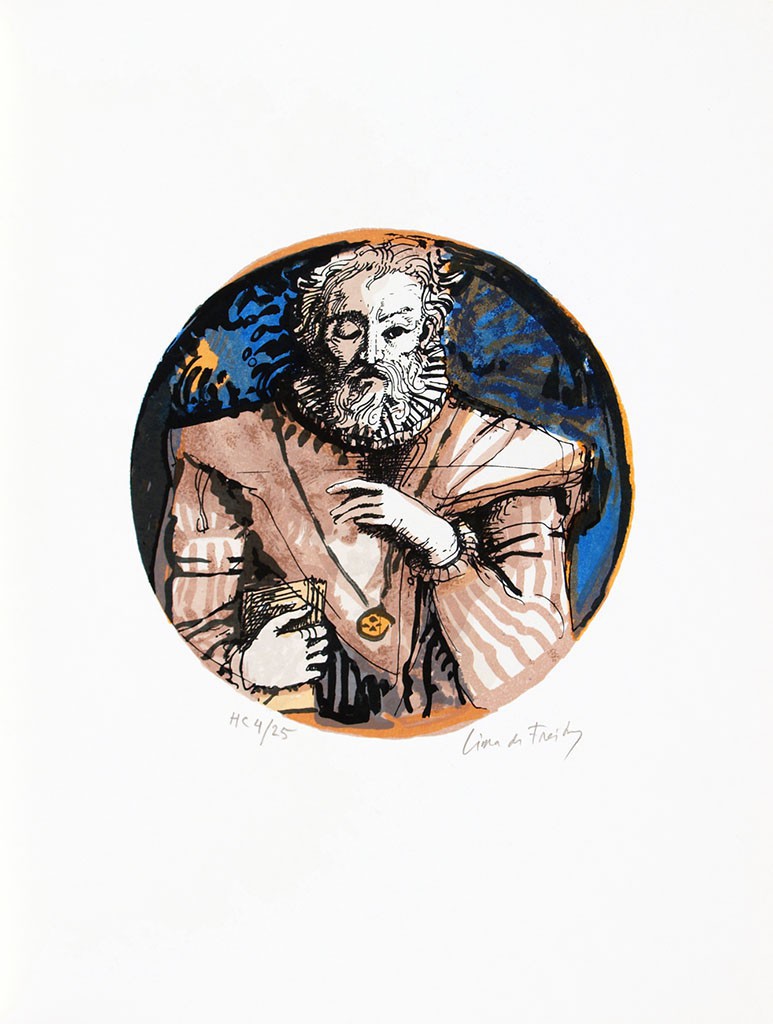
500 years of Luís de Camões
The Poet who gave “New worlds to the World”
Luís Vaz de Camões is considered one of the greatest figures of Portuguese literature and one of the most significant poets in the Western tradition. This year marks the 500th anniversary of his birth.
Over time, many artists have paid tribute to Camões and his work. José Faria, inspired by Canto IX of Os Lusíadas, the Isle of Love, published the author’s book “O Fascínio da Linha.”
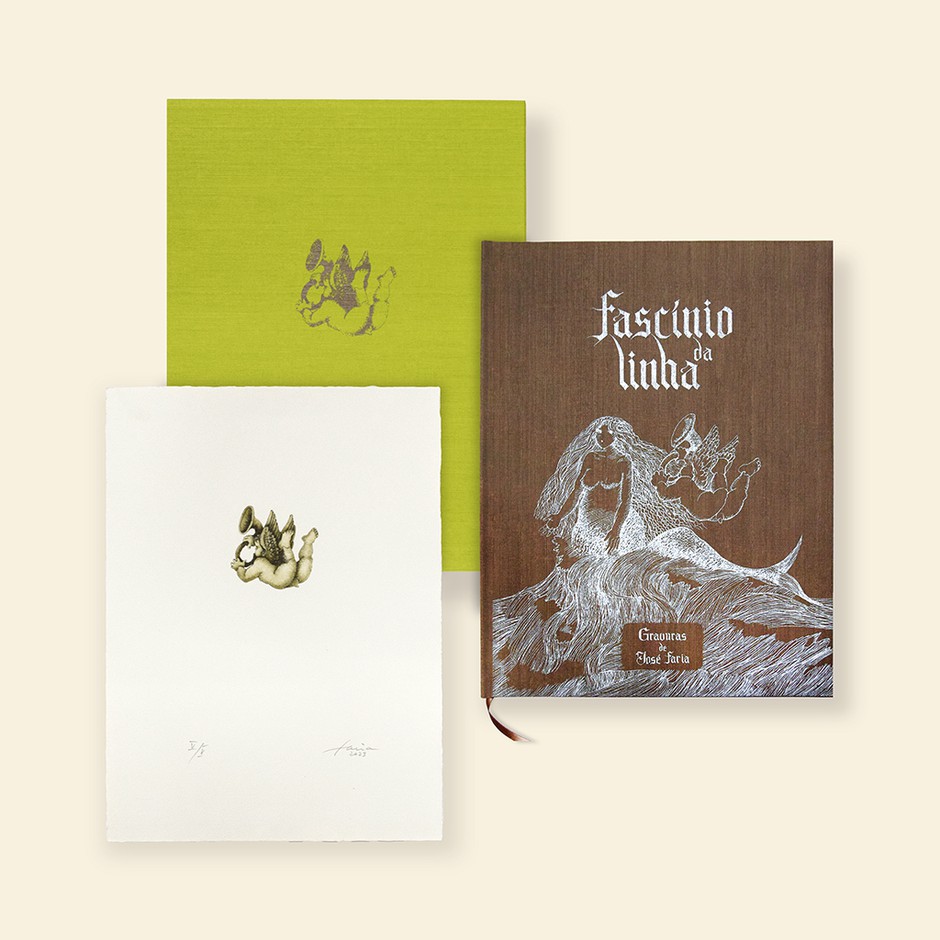
“Fascínio da Linha”, author’s book, 50 copies
This book includes 12 engravings in drypoint and etching, with the artist having handwritten the poem in the calligraphy of the era. The delicacy of the lines and José Faria’s mastery are clearly evident in this work.
Camões is a controversial figure, with few certain facts about his life. However, the importance of his work and genius is undeniable. Beyond its poetic value, we can recognize the relevance of Os Lusíadas for expanding the knowledge of the country's history to a broader readership: familiarity with the work created a foundation of historical memory and identity.
“Ah! minha Dinamene! Thus you left”
Ah! minha Dinamene! Thus you left
Who would never cease to love you!
Ah! my nymph, I can no longer see you,
So quickly you forsook this life!”
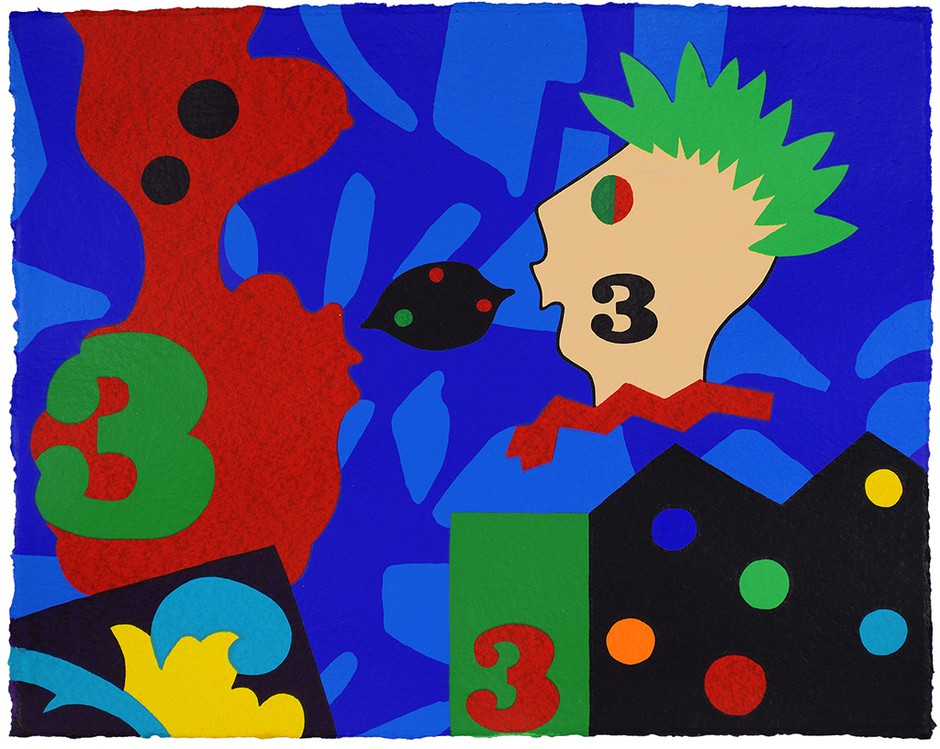
“Camões and Dinamene”, serigraphy on handmade paper, 200 copies
José de Guimarães explores the theme of Camões’ passions with his characteristic explosion of color.
Loves, heartbreaks, curious events, legends, unusual characters, sharp criticism of some nobles and kings—Camões demonstrated an unparalleled ability to address romantic and existential dramas and evoke strong emotions in his characters. *Os Lusíadas* is thus a work of complex and captivating literary architecture.
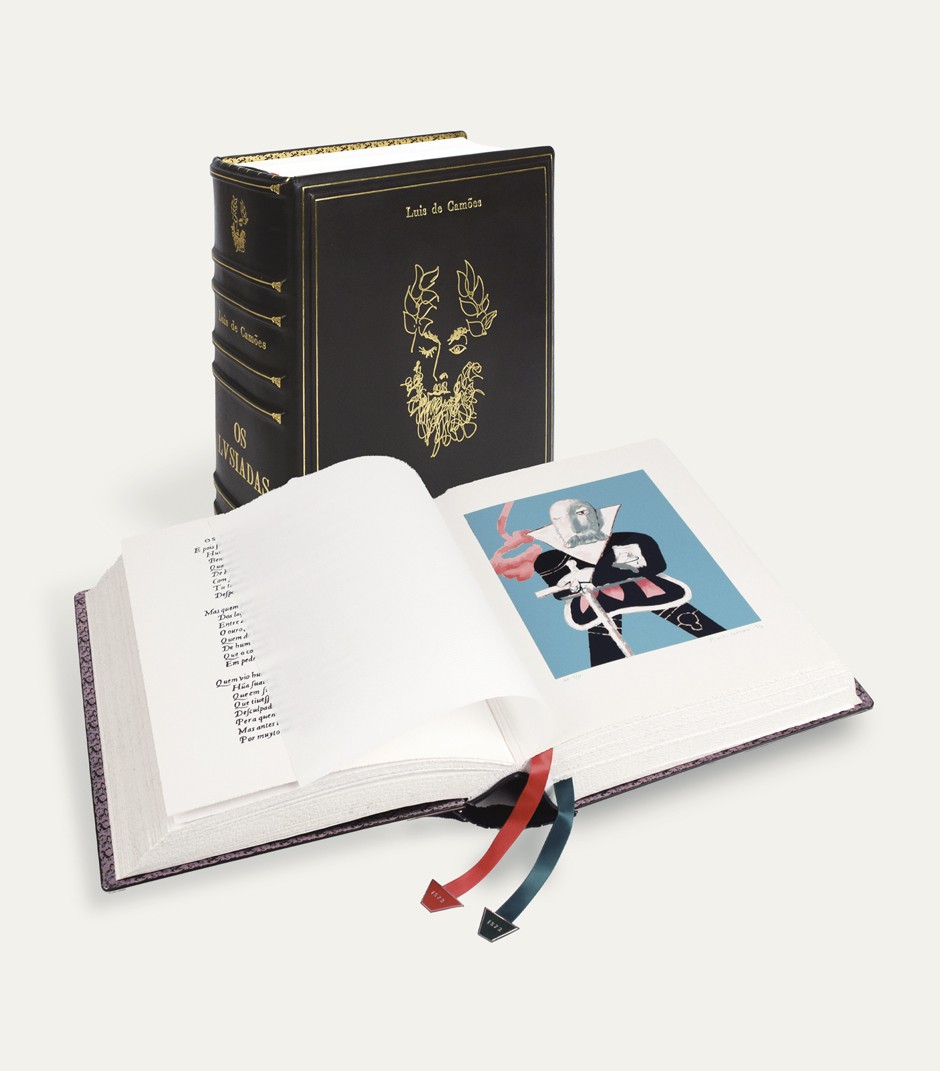
"Os Lusíadas" – Luxury Edition
illustrated with 14 serigraphs by renowned artists, 250 copies
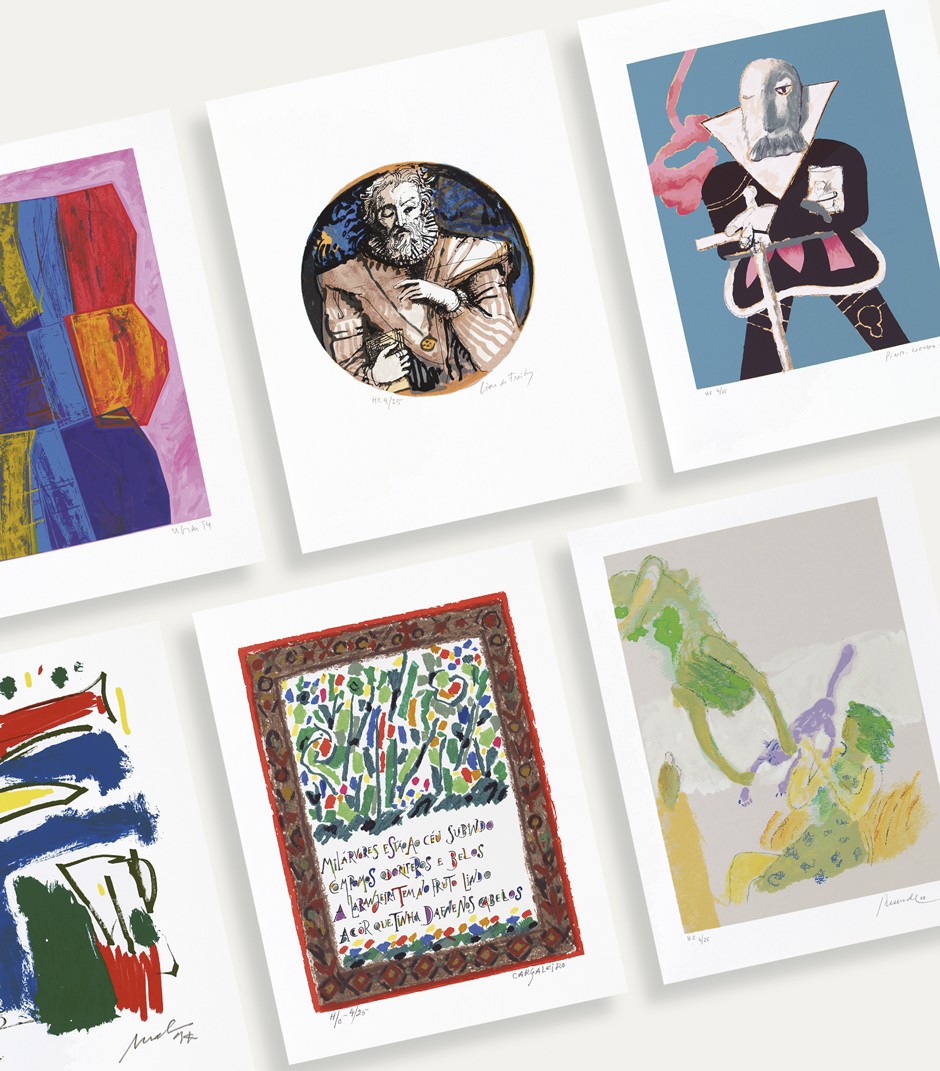
Álvaro Siza, Artur Bual, Cargaleiro, Eurico Gonçalves, Fernando Lanhas, João Cutileiro, João Vieira,
José Rodrigues, Júlio Pomar, Júlio Resende, Lima de Freitas, Luís Pinto Coelho, Maluda, Mário Cesariny.